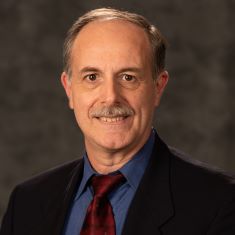
Armando Filie, M.D.
- Center for Cancer Research
- National Cancer Institute
- Building 10 - Magnuson CC, Room 2S235B
- Bethesda, MD 20892
- 301-480-8055
- afilie@mail.nih.gov
RESEARCH SUMMARY
Dr. Filie has promoted the utilization of new ancillary techniques and well-established ancillary tests in the diagnosis of cancer and other diseases in cytology. His recent studies have demonstrated that minute amounts of cytology material are sufficient for detecting EGFR and KRAS mutation and diagnosing cytomegalovirus infection. Dr. Filie also oversees the clinical research efforts of the Cytopathology Section, Laboratory of Pathology, which centers around the application of emerging molecular techniques to cytology where conventional processing methods and well-established ancillary techniques fall short in providing sufficient information for an accurate cytologic diagnosis.
Areas of Expertise
Research
The goals of the Cytopathology Section are to provide accurate, timely, sophisticated diagnoses to guide patient treatment and to support clinical protocols and research at NIH. This is accomplished through the diagnostic service as well as the application of established and newly developed ancillary/research techniques to clinical and research samples.
Cytopathology provides diagnostic evaluation of cytology specimens that direct patient management and treatment. The Section provides complete diagnostic services for various clinical protocols at the NIH Clinical Center. We specialize in the application of ancillary techniques (i.e., immunoperoxidase, flow cytometry and, most recently, molecular testing) to patient material for the confirmation of morphologic diagnoses, evaluation for protocol entry criteria and collaborative investigations.
Due to the nature of the specimen material evaluated by our Section, often our cases require immunoperoxidase studies (12 percent). The immunosuppressed nature of our patient population at the NIH dictates that a significant proportion of our cases require special studies for pathologic organisms (12 percent). The relatively high rate of pathologic findings, combined with the diversity of types of exfoliative and fine needle aspiration (FNA) specimens, provides a broad experience in diagnostic cytopathology for residency and fellowship training.
The Section is involved in numerous clinical research studies, many of which use FNA or exfoliative samples with immunocytochemistry and/or molecular techniques to provide ancillary diagnostic information. Examples of such studies include:
- Evaluation of expression of malignant melanoma markers (MART-1 and gp100) through the utilization of antibodies in ex-vivo FNAs from malignant melanoma patients;
- Evaluation of expression of epithelial markers (CK AE1/AE3 and CK 8/18) through the utilization of antibodies in ex-vivo FNAs from gastrointestinal carcinoma patients;
- Evaluation of expression of epithelial markers (CK AE1/AE3 and CK 8/18) through the utilization of antibodies in ex-vivo FNAs from non-gastrointestinal carcinoma patients;
- Morphologic and immunocytochemical evaluation of tumor infiltrating lymphocytes samples for possible tumor cell contamination prior to therapy;
- FNA material for subsequent analysis by polymerase chain reaction (PCR), microarray, and other molecular technologies;
- Evaluation of cell lines by morphology and immunocytochemistry; and
- Application of RNA-based molecular technique to non-gynecologic and FNA cytology samples to enhance diagnosis, prognosis and patient management.
Publications
- Bibliography Link
- View Dr. Filie's PubMed Summary.
Viral, immunologic, and clinical features of primary effusion lymphoma
A randomized, placebo-controlled, double-blinded, crossover trial of pioglitazone for severe asthma
High-Throughput Microdissection for Next-Generation Sequencing
An Improved Breast Epithelial Sampling Method for Molecular Profiling and Biomarker Analysis in Women at Risk for Breast Cancer
Breast implant-associated anaplastic large cell lymphoma in a patient with Li-Fraumeni syndrome
Biography

Armando Filie, M.D.
Dr. Filie is a graduate of the Santos School of Medical Sciences, Brazil. He completed residency training in Anatomic Pathology at Georgetown University Medical Center and fellowship training in Cytopathology at George Washington University Medical Center. After his fellowship, Dr. Filie joined the NCI in 1996 and serve as the director of the ACGME-accredited cytopathology fellowship training program at the Laboratory of Pathology, NCI. Dr. Filie's clinical research interests are related to the application of new ancillary techniques to cytopathology, immunocytochemistry, fine needle aspiration and thyroid.
